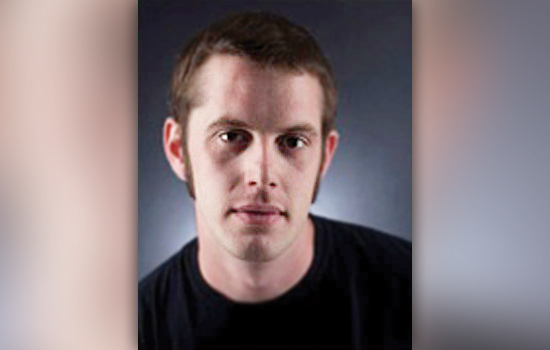RIT Student Helps Develop Experiential Games for Sustainability Ethics Education
New product is being used as a teaching tool at universities across the globe
Jathan Sadowski
Although textbooks are still the most common method of teaching in the classroom, a new model using interactive games to supplement traditional teaching has sprouted across universities in the United States and worldwide.
Jathan Sadowski, a winter graduate of Rochester Institute of Technology’s philosophy program, along with RIT associate professor Evan Selinger and researchers from Arizona State University, is capitalizing on the impact that experiential games have on learning communities. Through a $400,000 grant from the National Science Foundation, he has helped create series of interactive games focusing on the core ethical issues in sustainability today such as externalities, tragedy of the commons, weak versus strong sustainability and intergenerational justice. Sadowski, a New Orleans native, says the games simulate ethical situations and implore students to work together to make rational decisions.
“We’re asking students to confront two main questions,” says Sadowski. “ ‘What are my obligations to others and how much am I willing to risk my own well being?’ It’s possible for the students to create existential catastrophes, without affecting anything in reality. Our games allow students to have these experiences, learn from them and reflect upon them when they become professionals in the field.”
According to Sadowski, problems in sustainability tend to occur on large scales and it has become increasingly important for engineers to be sensitive to the norms of other cultures and be aware of how their actions affect people around the globe.
To pique interest, Sadowski has added an intercollegiate competitive component with students from RIT and Arizona State weighing off against each other, often resulting in fiery debates in the classroom. Students utilize upload resources and a discussion board to understand each other’s decisions and explore the make-believe ramifications of these decisions. Sadowski’s games use mathematical modeling that creates custom spreadsheets to tabulate the consequences of the students’ decisions.
Most recently, Sadowski traveled to Qatar to present his research and will be working with researchers from Arizona State this spring to further development of the games.
“Traveling to Qatar was my first international experience,” he says. “This concept has really engaged researchers and students from the U.S. and around the world and we’re looking into moving it to an international platform. Most issues in sustainability are global issues and it’s crucial that we work together to solve these problems.”













